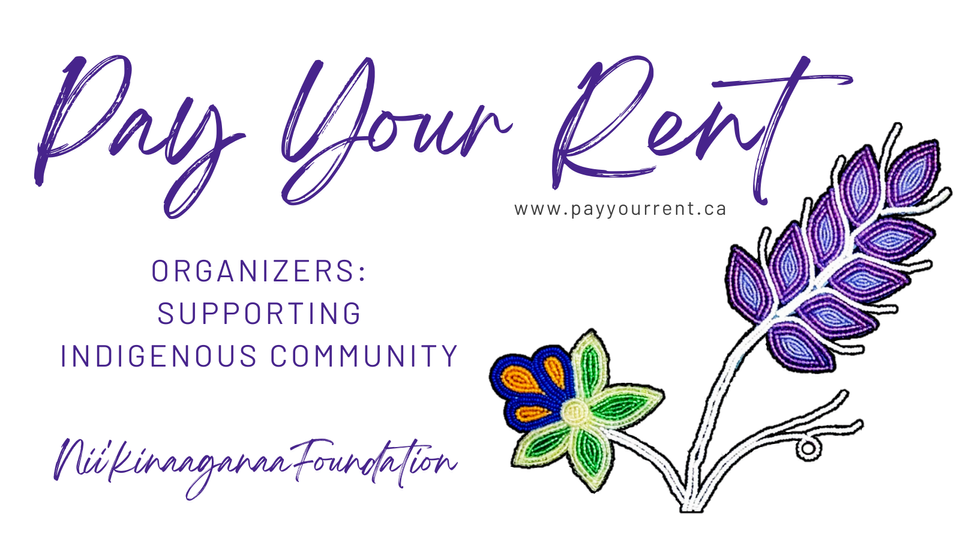Community Work

The Nii'kinaaganaa Foundation supports community organizers who are hard at work in their communities doing everything from building cultural knowledge to taking political action. We offer migro-grants up to $500 per month for a period of six months, and although we are currently at capacity you can check again in a few months to see if we are opening it for new applications.
Organizers we are currently supporting!
Resilience Montreal is an Indigenous-led organization in Montreal supporting a largely Inuit community. Funds from the Foundation support weekly cultural activities.
Medsin Cup formed when two women from two communities began trying to make a difference for elders who wanted to source medicines naturally and were not able to pick them themselves. Joni and her friend teach community members as well. You can read more about Joni and her work in this newsletter.
Rachel Ann Snow is a lawyer and educator working to educate First Nations and non-First Nations people on Indigenous issues impacting reserve communities in Western Canada.
Sunday Brunch Club is a collective in Calgary who monitor police interactions, collect data on police conduct, and provide alternatives to police interventions.
Terrill Tailfeathers is an organizer in Alberta working directly with community members to meet survival needs.
Debbie Ironbow is an organizer in Saskatchewan working primarily with young mothers to provide food and basic needs like diapers and formula. Debbie and her collective also provide monthly community meals with the funds we provide.
Black and Indigenous Harm Reduction is a group of community workers in Monthreal of diverse experience who wish to draw attention to the need for access to self-determined and holistic health services within our communities. Our work seeks to develop harm reduction approaches that meet our communities where they are at, and to expand understandings of harm reduction to include environmental violence, and the criminalization of youth, sex workers, street-involved peoples, and 2SLGBTQ people. We recognize that Black and Indigenous people in Canada are heavily impacted by extremely high rates of preventable health issues, poverty, and incarceration, yet we are rarely represented as leaders in harm reduction initiatives despite long histories of kinship and community-based responses to these needs. There are few Black- or Indigenous- centred harm reduction organizations, and we aim to address this at a grassroots level.
Kids Eat First is an Oneida collective that purchases groceries for families in need.
High Heels to Moccasins is a community support group in St. Catharines Ontario for people struggling with mental health and addictions. They meet on Saturdays to provide a hot meal, a fire, traditional medicines, and hygiene products for those who need it. They also hold blanket and coat drives in the winter and backpacks for back to school.